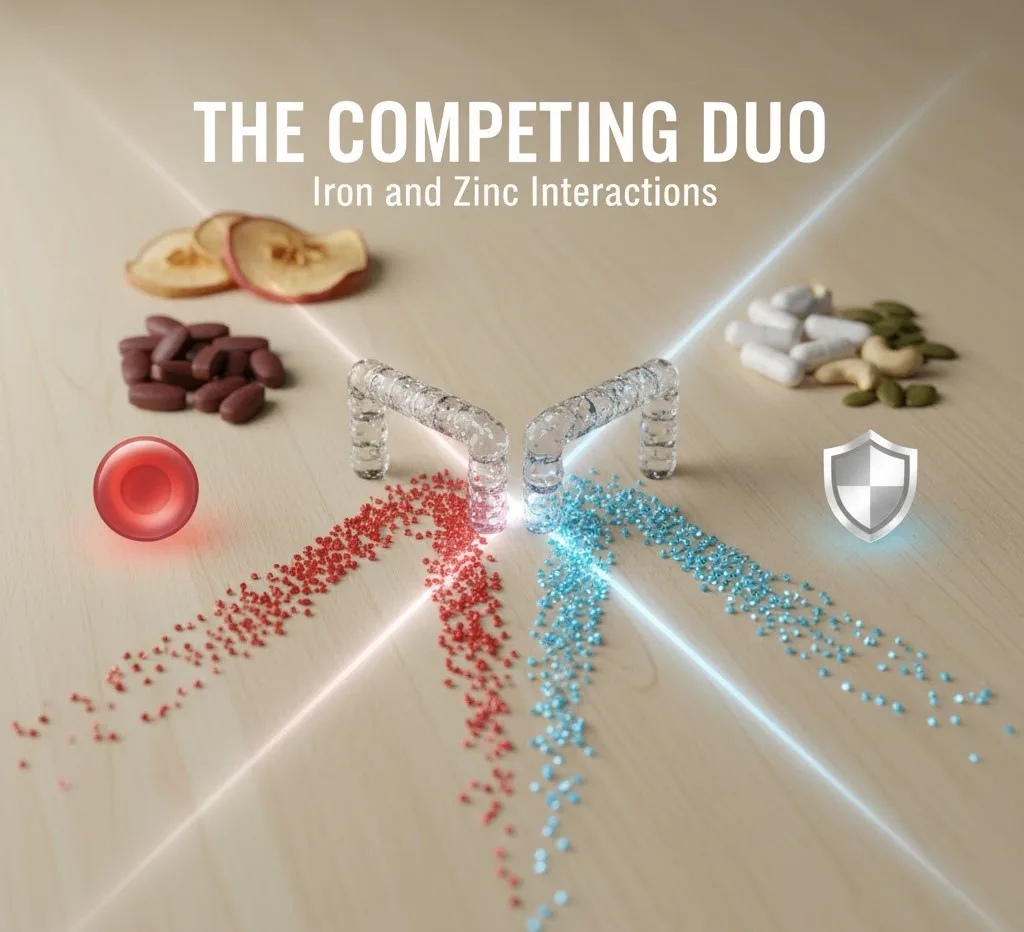Iron and zinc are two essential micronutrients critical for human health, supporting everything from oxygen transport and immune function to growth and DNA synthesis. However, when it comes to taking supplements, their chemical similarities lead to an interesting problem: they often compete for absorption in the gut. Understanding this dynamic is crucial for anyone taking a multivitamin or separate mineral supplements.
The Competition for a Ride
The interaction between iron and zinc primarily happens at the level of intestinal absorption. Both minerals are divalent metal ions (meaning they carry a +2 charge), and they rely on similar transport pathways to enter the bloodstream. The most well-known "taxi" for these ions is a protein called Divalent Metal Transporter 1 {DMT1}, also historically known as Nramp2.
When large amounts of iron and zinc are present in the gut at the same time, they essentially queue for the same limited number of t{DMT1} carriers. If one mineral is in high concentration, it can overwhelm the transporter and significantly reduce the absorption of the other.
-
Iron's Dominance: High doses of iron (especially in the form of ferrous sulfate) are known to be the stronger competitor, often having a negative impact on zinc absorption.
-
Conflicting Data: While this competition is generally accepted, especially with high-dose supplements taken on an empty stomach, studies on fortified foods or lower doses often show less or no antagonism. However, the safest approach for targeted supplementation is to assume the competition is active.
Why Separating Doses is Key
For people dealing with deficiencies in both minerals—which is common globally—simply increasing the dose in a single supplement might not be the most effective solution. The best strategy to maximize the benefits of both iron and zinc is timing:
| Mineral | Ideal Supplementation Strategy |
| Iron | Best absorbed on an empty stomach, but can be taken with a small amount of vitamin C to enhance absorption. |
| Zinc | Can cause stomach upset, so it is often recommended to take with food. |
| Iron & Zinc | Separate the doses by at least 2 to 4 hours. For example, take zinc in the morning with food and iron in the evening, or vice versa. |
By separating the doses, you ensure that each mineral gets an opportunity to bind to the transport proteins ($\text{DMT1}$) without the presence of its rival. This simple adjustment can significantly improve your body’s ability to use both vital nutrients effectively. Always consult with a healthcare provider before starting a new supplement regimen.

